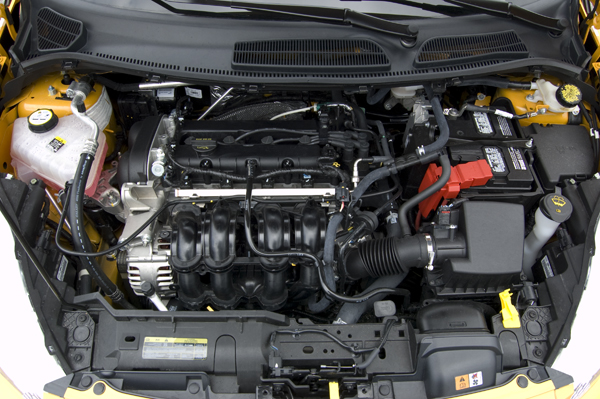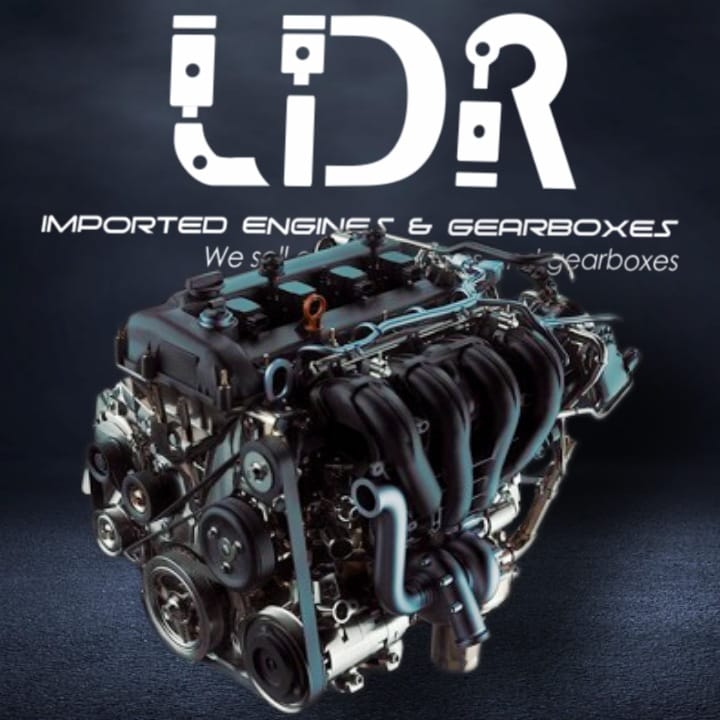Save Money on Repairs with Regular Ford Fiesta Engine Inspections
Save Money on Repairs with Regular Ford Fiesta Engine Inspections
Blog Article
Unlocking the Power of Engines: A Comprehensive Guide to Performance and Efficiency
Recognizing the complex mechanics of engines is critical for both efficiency enthusiasts and daily motorists. The responses may redefine our strategy to engine efficiency and effectiveness in methods that are both enlightening and vital.
Understanding Engine Fundamentals
What constitutes the basic technicians of an engine? At its core, an engine is a machine developed to transform gas right into mechanical energy through a series of regulated surges or combustion procedures.
The crankshaft then changes this direct movement into rotational energy, which ultimately powers the automobile. The camshaft regulates the opening and closing of the shutoffs, controling the consumption of air and gas and the expulsion of exhaust gases. In addition, the engine depends on a thoroughly adjusted fuel-air blend, ignition system, and cooling system to make certain optimal performance and effectiveness.
Comprehending engine fundamentals also includes identifying the relevance of engine cycles, such as the four-stroke cycle, which consists of consumption, power, exhaust, and compression strokes. Each phase is vital in making sure the engine operates efficiently and efficiently. Mastery of these fundamental mechanics lays the groundwork for discovering much more intricate engine characteristics and efficiency metrics, necessary for optimizing both power output and efficiency.
Trick Performance Metrics
Secret efficiency metrics are necessary for assessing an engine's effectiveness and power outcome, supplying beneficial understandings for both customers and suppliers. These metrics work as benchmarks for engine efficiency, enabling informed decisions in production, getting, and style.
Among the main metrics is horsepower, which quantifies the engine's capacity to perform work over time. Torque, measured in pound-feet, is another vital statistics that indicates the engine's rotational pressure, straight influencing velocity and lugging ability. Gas performance, typically measured in miles per gallon (MPG) or liters per 100 kilometers (L/100km), examines exactly how properly the engine transforms gas right into activity, affecting operational prices and environmental considerations.
Furthermore, thermal efficiency actions exactly how well an engine transforms fuel power right into helpful job, exposing understandings right into energy losses largely through warmth. Discharge levels, including CO2 and NOx, are likewise vital, reflecting the engine's ecological impact and conformity with regulative standards.

Tuning Techniques for Effectiveness
Tuning techniques play a considerable duty in enhancing engine effectiveness by optimizing performance metrics recognized in earlier discussions (ford fiesta engine). Different methods exist to adjust an engine, each adding to boosted fuel economy and reduced discharges
One effective strategy is changing the air-fuel proportion, guaranteeing the engine runs within the optimum combustion regimen. A leaner blend can boost fuel effectiveness, yet it must be stabilized to avoid misfires or engine knock. Furthermore, reprogramming the engine administration system can rectify parameters such as ignition timing, which even more enhances performance while preserving power output.
An additional essential approach involves modifying the consumption and exhaust systems. Updating to high-performance air filters and exhaust headers can lower back stress, facilitating better air movement. This permits the engine to take a breath even more easily, causing boosted burning effectiveness.
Additionally, the application of sophisticated tuning tools, like dyno testing, gives exact information that makes it possible for targeted changes. Frequently checking these efficiency metrics ensures that adjusting efforts yield the preferred effectiveness results. Jointly, these techniques not only reinforce engine efficiency however likewise add to lasting sustainability in engine operations.
Upkeep for Ideal Efficiency
Regular engine maintenance is crucial for accomplishing optimal efficiency and durability. A properly maintained engine not just operates successfully however also decreases the danger of pricey repair services and break downs. Trick elements requiring routine attention consist of oil, filters, belts, and spark plugs.
Transforming the engine oil at suggested periods is important, as oil lubricates relocating parts and protects against getting too hot. In a similar way, changing oil and air filters makes certain that impurities do not hinder engine function. Ignoring these parts can bring about decreased effectiveness and prospective engine damages.
In addition, examining and replacing used belts and hoses is crucial to avoid sudden failures. Timing Our site belts, specifically, ought to be changed according to the supplier's schedule to avoid tragic engine damage.
Glow connects must additionally be checked and replaced as needed, since they play a crucial function in ignition and gas efficiency.
Future Patterns in Engine Technology
Embracing improvements in innovation, the future of engine style is poised to change efficiency and effectiveness throughout numerous applications. Hybrid and fully electrical powertrains are coming to be progressively mainstream, offering lowered discharges and enhanced fuel efficiency.
Furthermore, advancements in materials science are causing lighter, more powerful elements that boost engine performance while reducing energy intake. Advanced manufacturing strategies, such as 3D printing, enable for the creation of complicated geometries that improve air flow and thermal management, therefore maximizing combustion procedures.
Additionally, the assimilation of synthetic knowledge and equipment knowing is set to transform engine diagnostics and efficiency tuning. These innovations can assess large quantities of information in real time, allowing anticipating upkeep and customized performance enhancements.
Verdict
In final thought, opening the power of engines requires a detailed understanding of their mechanics and performance metrics. Carrying out reliable tuning methods and sticking to normal maintenance methods dramatically boost engine capabilities.
Furthermore, the engine depends on a meticulously adjusted fuel-air blend, ignition system, and cooling system to ensure ideal efficiency and performance.
Understanding engine essentials also includes identifying the significance of engine cycles, such as the four-stroke cycle, which consists of consumption, compression, power, and my website exhaust strokes. Mastery of these basic mechanics lays the groundwork for discovering more complex engine dynamics and efficiency metrics, important for enhancing both power output and performance.

Welcoming improvements in modern technology, the future of engine style is positioned to reinvent performance and performance throughout different applications.
Report this page